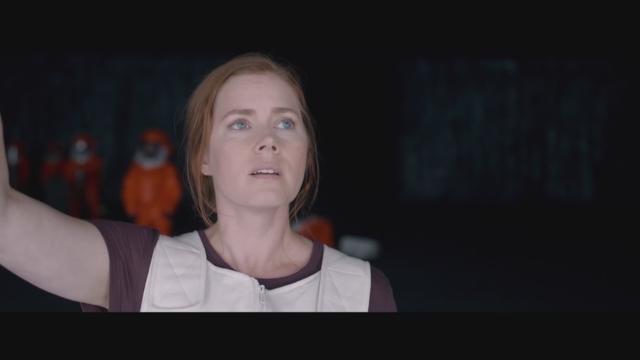'Arrival' takes measured response to alien contact

The new sci-fi film Arrival posits a first contact with aliens that shuns a war of the worlds in favor of a peaceful interaction of civilizations.
It's an approach that likely would resemble a real-life encounter, says Douglas Vakoch, president of Messaging Extraterrestrial Intelligence (METI) International, which researches the societal implications of other life in the galaxy. Our initial reaction would be “to try to make sense of something that’s radically different from anything we’ve ever encountered."
“Movies are a powerful source of inspiration and guidance when we encounter the unknown,” he adds. “If our vision of a first encounter with an alien civilization is Independence Day, it makes us very scared. If we have a more optimistic notion like Arrival, then we can actually step back a bit and look at the real situation.”
In the new film (in theaters Friday), a dozen spacecraft show up suddenly and hover over the land, prompting the U.S. government to put together an elite team including linguistics professor Louise Banks (Amy Adams) and physicist Ian Donnelly (Jeremy Renner) to decipher alien messages and figure out alien vocabulary so mankind can respond.
“I love the idea that our survival could be linked with a new form of humility, reflected in the lessons learned from the (aliens) in the movie,” says Arrival director Denis Villeneuve.
It’s a different tack than, say, the one taken in 1951’s The Day the Earth Stood Still, where a flying saucer is immediately surrounded by the Army and a tense moment involving a gift from the aliens to our president leads to a trigger-happy soldier getting vaporized by a robot.
While cooler heads usually prevail, Arrival does feature one suspicious military response akin to those seen in 1977's Close Encounters of the Third Kind and 1982's E.T.: The Extra-Terrestrial, says producer Shawn Levy. But E.T. was made in “the thick of the Cold War” and in the decades since, humanity has a better understanding of those complexities.
“The movie tries to suggest hope that the response to outside threat would be a little more measured and thoughtful rather than blow them out of the sky,” Levy adds.
When Ted Chiang wrote his 1998 novella Story of Your Life, which Eric Heisserer adapted for his Arrival screenplay, Chiang considered how such an alien scenario would actually play out. The USA would certainly make preparations, but instead of shooting first, he figured they would determine any hostile intentions beforehand.
“They would probably know that any alien race that could make it to Earth has the technological capability to kick our butts,” Chiang says. “I don’t think they would try and pick a fight if they didn’t have to.”
Vakoch agrees with that interpretation. “If you're in the technologically inferior position, the message you want to get across is we’re much more interesting if we’re around to talk with you and teach you what we know and learn from you than if you annihilate us.”
The way Arrival plays out has seemed accurate in recent years to Heisserer, though with a more tumultuous global atmosphere in 2016, “I’m not so sure now,” the screenwriter says. “I really want to hope that there’s a Louise Banks out there who would help save us because we need her.”